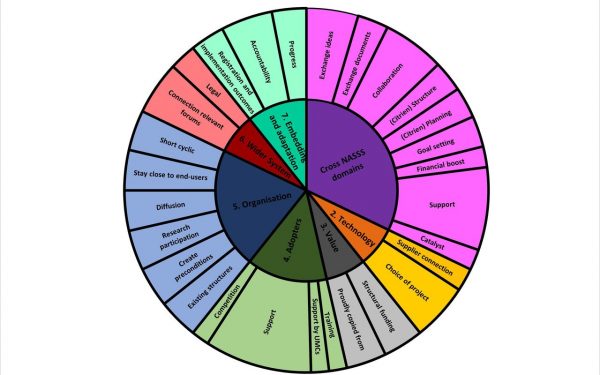Advancing the science of person-centred technology
ELLLA’s state-of-the-art facilities, groundbreaking methods and robust processes, define the cutting edge of human factors engineering in health care.

In digital transformation, how do you put people first?
ELLLA’s research lines address critical research questions that underlie the science of person-centred health care supported by trusted digital solutions. This means developing new methods for designing, testing, implementing and evaluating digital solutions that are user-centred, inclusive and sustainable.
By coupling our scientific research activities to education, innovation and industry collaboration, we build a continuous learning cycle. Challenges in practice shape our research questions, and our results help shape the practice–and practitioners–of the future.
ELLLA's main research lines
Digital health literacy & inclusive design
Healthcare must remain accessible to all. Our research engages many different target groups in which digital health literacy is often a challenge, and enables us to develop innovative solutions that are user-friendly, understandable and widely applicable.
Read more

Usability & UX methods
Human interaction with digital solutions and information systems is complex. More sophisticated research methods and evidence-based standards are needed to align technology with people’s needs so that it can be used safely and effectively.
Read more
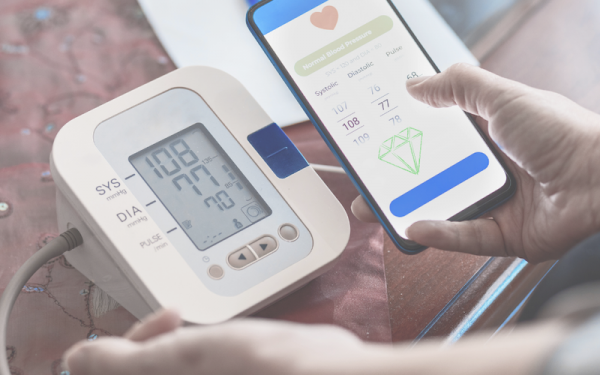
Technology implementation
Many digital solutions are developed but never implemented at scale. Our research seeks to understand whether and how digital solutions are implemented, to help health care providers, developers and policymakers make informed decisions on the deployment of new technologies.
Read more

Early health technology assessment
Digital health solution are notoriously challenging to evaluate, owing to iterative development cycles. Early HTA seeks to capture the potential benefits and costs for patients, professionals, payers and all stakeholders from initial development onwards.
Read more

Green technology for health care
By applying medical informatics to reduce the environmental footprint of healthcare processes, our research integrates sustainability principles to ensure that digital health solutions are not only effective but also ecologically responsible.
Read more

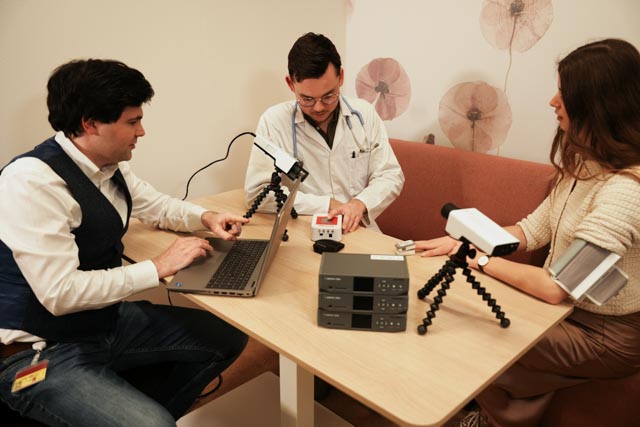
State of the art user research facilities
ELLLA operates a mobile UX lab, fully equipped for application of a wide range of user testing methods, in simulated or live clinical environments, and in real-world settings.
- Eye tracking
- Multi-camera and multi-channel audio recording
- Screen-capture
- Facial recognition
- Viso capture software for multi-channel data
Research methods
Our team are highly skilled and experienced in a wide range of qualitative and quantitative data collection and analysis methods, not limited to those derived from human factors engineering.
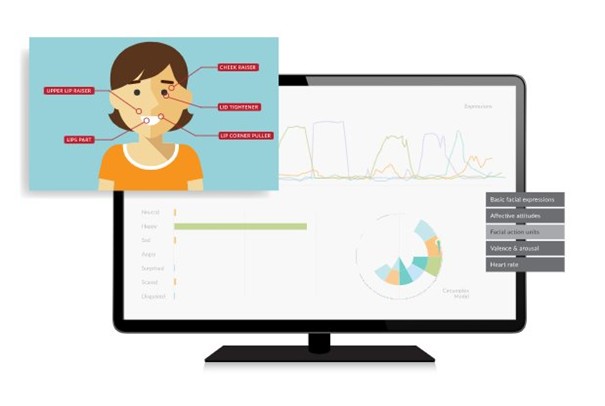
Ideation and design
- Co-creation & co-design
- Structured, semi-structured and unstructured interviews
- Focus groups
- Card sorting
- Workflow & user journey design
- UI prototyping
Testing
- Heuristic and expert-testing methods
- Validated instruments (e.g. GEMS, UMUX)
- Custom surveys
- Think aloud
- Eye tracking studies
- A-B comparative testing
- Other advanced user testing methods
Implementation science
- Stakeholder analysis
- Theoretical framework application (e.g. NASSS)
- Process evaluations (e.g. MRC framework)
Impact evaluation
- Sextuple aim framework evaluations
- Early health technology assessment
- Feasibility studies
- Randomized controlled trials
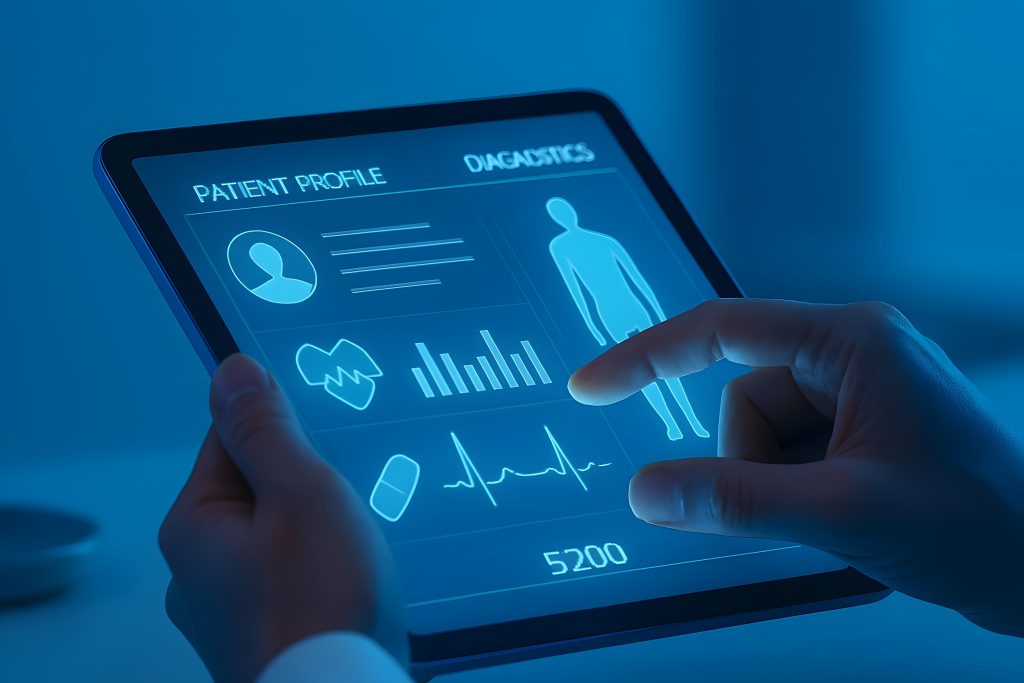
“eHealth”: Technologies that we work on
We support the development, testing, and evaluation of a wide range of technologies including applications of AI, eHealth and other digital health solutions .
- LLM and generative AI applications
- Clinical decision support systems & predictive AI
- Explainable AI (XAI)
- Electronic health records (EHR) & health information systems (HIS)
- Software apps and websites
- mHealth & eHealth
- Telemedicine & remote patient monitoring
- Wearables
- Serious games
Latest research projects
New instrument for accessible technology: GEMS
Traditional usability questionnaires for digital health solutions are too complex for people with lower literacy. A new visual card deck with simple language and images makes usability evaluations more inclusive and accessible for everyone.
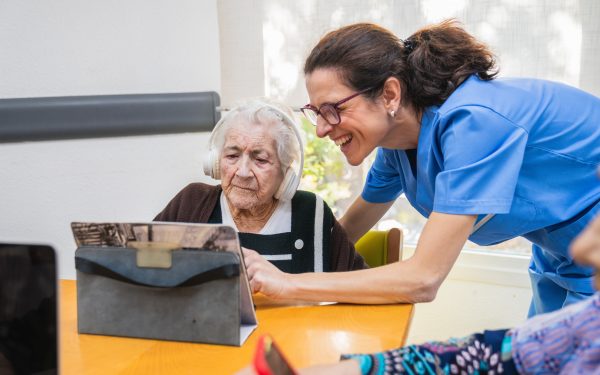
Usable online guidelines for child health
User-centred design of the JGZ RichtlijnRouteTool aims to improve the development, selection, and implementation of clinical decision support systems for youth health care.
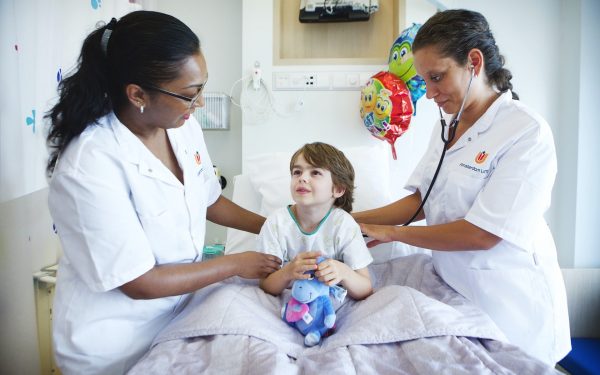
Implementing a smart patch for telemedicine
Minke Geerlings-Holleboom studies how a smart patch supports nurses at Amsterdam UMC, using surveys and interviews. The pilot aims to investigate whether the technology supports staff and improves early detection of deterioration.
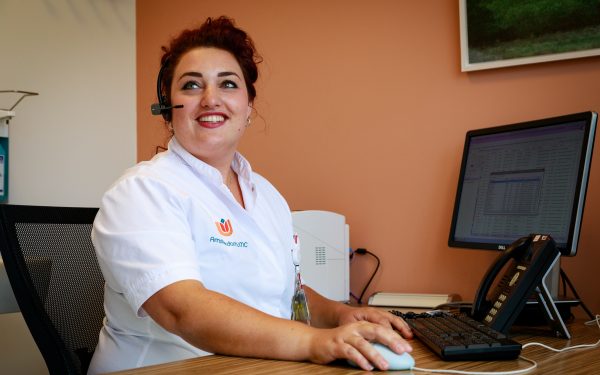
Featured publications
Patients’ Experienced Usability and Satisfaction With Digital Health Solutions in a Home Setting: Instrument Validation Study
The study developed and validated the GEMS questionnaire for usability studies. GEMS shows good reliability and validity and is easy to understand for most research participants.
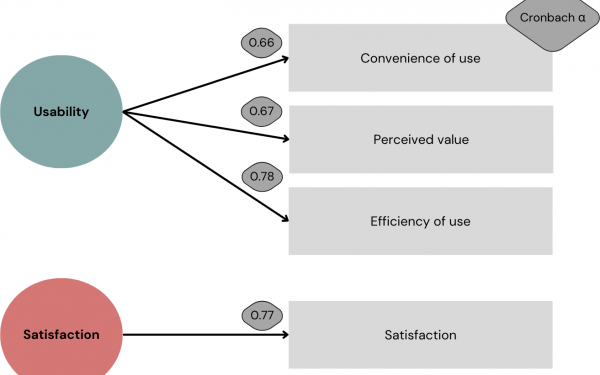
Digital tools to support informed decision making among screening invitees in a vulnerable position for population-based cancer screening: A scoping review
Several digital tools can improve at least one outcome related to informing vulnerable individuals for screening. New research should evaluate combinations of digital tools.
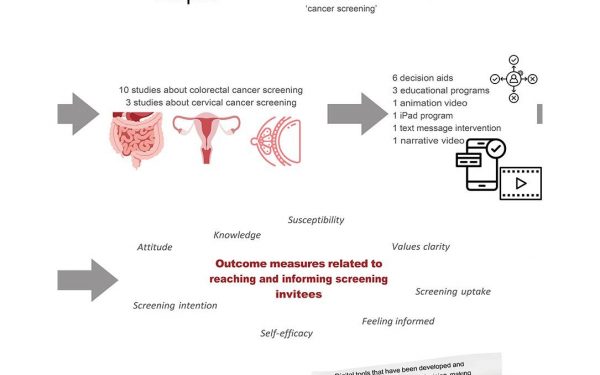
Value of a Nationwide University Network in scaling up telemonitoring: a qualitative study
The Citrien-2 nationwide eHealth network facilitated scaling up telemonitoring in university hospitals by promoting collaboration and structured approaches, to overcome common barriers such as funding and legal issues.
